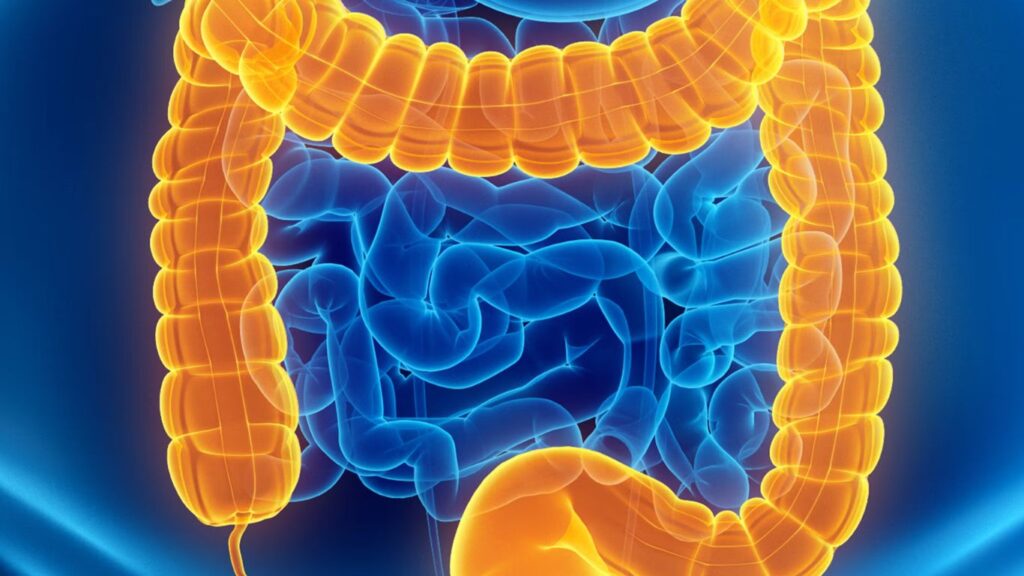Many of us struggle with stubborn belly fat, despite our best efforts with diet and exercise. However, the reasons behind this frustrating phenomenon may surprise you. Beyond the usual suspects like poor diet and lack of exercise, there are several unexpected factors that contribute to belly fat. From hormonal imbalances to stress, and even lack of sleep, understanding these hidden causes can provide crucial insights into effective weight management strategies. In this blog, we’ll explore seven surprising factors that might be holding you back from achieving a flatter, healthier midsection. Let’s unveil these hidden culprits and take control of our health.
7 Surprising Causes of Stubborn Belly Fat
1.Stress: The Silent Saboteur
Chronic stress triggers the release of cortisol, the body’s stress hormone. Elevated cortisol levels not only stimulate appetite but also promote fat storage, particularly around the abdomen. This happens as cortisol mobilizes energy reserves for the body’s “fight or flight” response, increasing the availability of glucose that, if not used, is stored as fat. Prolonged exposure to high cortisol levels due to chronic stress can contribute to persistent abdominal fat deposition, emphasizing the crucial link between stress management and weight regulation.
Tips for managing stress:
- Meditation: Dedicate time daily for focused breathing exercises or guided meditation sessions, calming the mind and reducing stress.
- Yoga: Engage in yoga routines that incorporate stretching, controlled breathing, and relaxation techniques, promoting both physical and mental well-being.
- Mindfulness Practices: Integrate mindfulness into daily activities by staying present and aware, whether during eating, walking, or simple tasks, fostering a sense of calm and reducing stress responses.
- Progressive Muscle Relaxation: Practice systematically tensing and relaxing muscle groups, easing physical tension and signaling relaxation to the body.
- Deep Breathing Exercises: Incorporate deep, intentional breathing throughout the day to alleviate stress and maintain a sense of calmness amidst challenges.
2.Sleep Deprivation: The Weight of Restlessness
Inadequate sleep disrupts the delicate balance of hormones regulating appetite and metabolism. Reduced sleep affects leptin and ghrelin, hormones responsible for signaling fullness and hunger, respectively. Sleep deprivation lowers leptin levels, signaling the brain to increase appetite, while elevating ghrelin, intensifying hunger cravings. This imbalance leads to increased calorie intake and poor food choices. Additionally, sleep deficiency alters insulin sensitivity, impacting how the body processes sugars and stores fat, ultimately contributing to weight gain and disrupted metabolic functions.
Tips for managing sleep deprivation:
- Consistent Schedule: Set a regular sleep-wake cycle, aligning bedtime and wake-up times, even on weekends.
- Relaxation Rituals: Establish a bedtime routine, like reading or taking a warm bath, signaling the body to wind down.
- Optimal Environment: Create a sleep-conducive setting—cool, dark, and quiet—using blackout curtains or white noise machines.
- Limit Stimulants: Avoid caffeine and electronics before bedtime to prevent disruptions in sleep patterns.
- Comfortable Sleep Space: Invest in a quality mattress and pillows that support restful sleep.
- Mindfulness Techniques: Practice relaxation or meditation to calm the mind before sleep, easing into a restful state.

3.Hormonal Imbalances: The Weighty Influence
Hormonal disorders such as Cushing’s syndrome, characterized by excessive cortisol production, directly contribute to abdominal fat deposition. PCOS (Polycystic Ovary Syndrome) disrupts hormone levels, leading to insulin resistance, weight gain, and increased abdominal fat. Thyroid disorders like hypothyroidism slow metabolism, promoting weight gain, especially around the midsection. These conditions disrupt hormonal balance, impacting metabolism, insulin sensitivity, and cortisol levels, all of which significantly contribute to the accumulation of stubborn abdominal fat. Seeking medical guidance for managing these conditions is crucial in addressing their impact on weight distribution.
Hormonal Treatments: Medical interventions like hormone replacement therapy (HRT) or cortisol-lowering medications aid in managing Cushing’s syndrome and hormonal imbalances in PCOS, restoring hormone levels to normal ranges
Lifestyle Changes: Adopting a balanced diet, regular exercise routine, and stress-management techniques can mitigate symptoms of PCOS and support thyroid health. For PCOS, managing weight through a balanced diet and exercise helps regulate insulin levels. Stress reduction techniques, adequate sleep, and a nutrient-rich diet support thyroid function, aiding in weight management for thyroid disorders. Combining these approaches with medical guidance is key for effective management of these hormonal conditions.
4.Gut Health: The Microbiome Connection
Gut health significantly influences weight regulation, with gut bacteria playing a pivotal role. The diverse microbiome affects metabolism, inflammation, and nutrient absorption. Certain gut bacteria extract more energy from food, impacting calorie intake. Imbalances in gut flora relate to weight gain, insulin resistance, and fat storage. Moreover, gut microbes influence hormones regulating appetite and fat storage. A healthy gut, fostered by a diverse diet rich in fiber and fermented foods, promotes a balanced microbiome, aiding weight management by supporting efficient digestion, metabolism, and overall health.
Methods promote gut health by nurturing beneficial bacteria, supporting digestion, and enhancing overall well-being :
- Probiotics:
- Supplements: Introduce probiotic supplements containing diverse bacterial strains.
- Fermented Foods: Consume yogurt, kefir, kimchi, or sauerkraut, rich in beneficial bacteria.
- Prebiotics:
- Dietary Sources: Include foods like garlic, onions, bananas, and asparagus, feeding beneficial gut bacteria.
- Supplements: Consider prebiotic supplements to enhance gut flora diversity.
- Fiber-Rich Diet:
- Whole Grains: Opt for whole grains, oats, and barley.
- Fruits and Vegetables: Increase intake of leafy greens, berries, and legumes to boost fiber consumption.

5.Environmental Toxins: The Hidden Intruders
Environmental pollutants and endocrine disruptors pose a significant threat to fat accumulation, particularly around the abdomen. These compounds mimic hormones, disrupting the endocrine system, and altering metabolic processes. Exposure to such pollutants correlates with increased abdominal fat deposition, insulin resistance, and disrupted hormonal balance.
Substances like bisphenol A (BPA) found in plastics, pesticides, and certain chemicals act as endocrine disruptors, impacting fat distribution and metabolism. Their interference with hormonal signaling pathways contributes to the accumulation of visceral fat, heightening the risk of metabolic disorders and abdominal obesity.
Steps which aid in minimizing exposure to environmental pollutants, promoting a healthier living environment and reducing the risk of fat accumulation due to endocrine disruptors:
- Choose for Organic: Choose organic foods to reduce exposure to pesticides and chemicals used in conventional farming.
- Plastic Reduction:
- Use Alternatives: Replace plastic containers with glass or stainless steel options for food storage.
- Avoid Heating Plastics: Refrain from microwaving food in plastic containers to prevent chemical leaching.
- Water Filtration: Invest in a water filtration system to limit exposure to contaminants present in tap water.
- Natural Cleaning Products: Opt for eco-friendly, natural cleaning supplies to minimize exposure to harsh chemicals at home.
- Air Quality: Improve indoor air quality by ventilating spaces and using air purifiers to reduce airborne pollutants.

6.Medications: The Unseen Contributors
Medications which disrupt appetite regulation, metabolism, and hormonal balance, contributing to weight gain, especially around the midsection, through various mechanisms.
- Antidepressants:
- SSRIs and TCAs: Selective serotonin reuptake inhibitors (SSRIs) and tricyclic antidepressants (TCAs) can lead to weight gain via increased appetite and metabolic changes.
- Antipsychotics:
- Clozapine and Olanzapine: These medications affect appetite-regulating neurotransmitters, increasing hunger and altering metabolism, leading to central obesity.
- Corticosteroids:
- Prednisone and Cortisone: They promote fat accumulation, particularly around the abdomen, by altering metabolism and increasing insulin resistance.
Consult healthcare providers for alternative medications or lifestyle adjustments if experiencing medication-induced weight gain. Providers can suggest medication swaps with lower weight-gain risks or lifestyle modifications to mitigate effects. Open communication ensures personalized strategies to manage conditions effectively while minimizing unwanted weight-related side effects.
7.Genetics: The Inherited Belly
Genetic predispositions significantly impact fat distribution. Certain genes regulate fat storage and metabolism, influencing where fat accumulates. Variations in these genes can predispose individuals to store more fat around the abdomen due to factors like hormonal signaling or enzymes involved in fat processing. Genetic influences on insulin sensitivity and cortisol production also contribute to abdominal fat deposition. Understanding these genetic traits helps grasp why some individuals are prone to store more visceral fat, emphasizing the importance of personalized approaches to fitness and weight management tailored to one’s genetic makeup.
Personalized approaches to fitness and weight management:
- Precision in Strategy: Personalized approaches factor in genetic predispositions for fat storage, tailoring fitness and diet plans for effective results.
- Optimized Exercise Regimens: Genetic insights help customize workouts targeting areas prone to fat accumulation, optimizing fat loss.
- Individualized Nutrition Plans: Understanding genetic influences aids in recommending diets suitable for metabolic traits, supporting weight management.
- Long-term Health Focus: Personalization fosters sustainable habits aligned with genetic tendencies, promoting overall health beyond just weight loss.
- Improved Results: By addressing inherent factors, personalized approaches offer enhanced outcomes, making weight management more efficient and targeted.

Conclusion:
Stubborn belly fat isn’t always solely a result of diet and exercise choices. Factors like stress, sleep, hormones, gut health, environmental toxins, medications, and genetics can significantly impact its accumulation. By acknowledging and addressing these surprising contributors, individuals can better tailor their lifestyle choices, seeking a more holistic approach to achieving a healthier, slimmer midsection.
Also read: The Role of Mindfulness and Mental Health in Weight Loss
